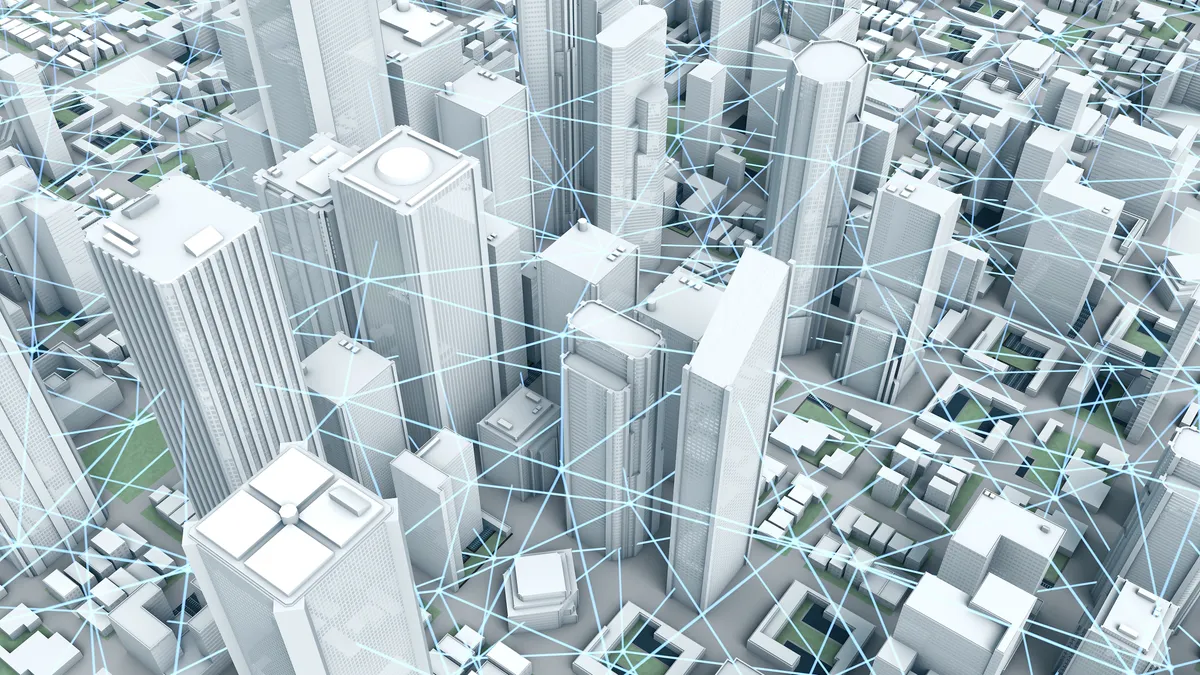Dive Brief:
- A nationwide coalition of city leaders and advocacy groups are urging the Federal Communications Commission (FCC) to investigate the practice of "digital redlining," which they said has resulted in a gaping digital divide that impacts communities of color the most.
- In a letter dated Monday to acting FCC Chair Jessica Rosenworcel, the group of 98 leaders from 28 states and the District of Columbia said too many residents in majority-minority communities lack reliable high-speed internet access. They also criticized internet service providers (ISPs) for profiting "handsomely" during the coronavirus pandemic but not doing enough to improve access.
- The signees called on the FCC to launch a commission focused on what they said was a trend of digital redlining, and to provide potential remedies. They also urged the FCC to reclassify broadband providers as common carrier services under Title II of the Communications Act, and so reinstate net neutrality rules. The latter move would prevent ISPs from capping speeds and data, the letter said.
Dive Insight:
The pandemic highlighted the vast digital divide that exists in the United States, not just between urban and rural communities but also within cities themselves. Experts have previously said the situation should serve as a catalyst for ubiquitous internet, in the same way the Great Depression highlighted the need for ubiquitous electricity.
But the signees noted the digital divide existed long before the pandemic and has left communities of color at a disadvantage, as a disproportionate amount of neighborhoods are not connected. Low-income families are further disadvantaged by data caps that add fees for higher usage. Local leaders said there are similarities with the 20th century practice of redlining, wherein mortgage companies would deny minority populations home loans to buy houses in other neighborhoods and deny them funds to improve their current homes.
"Let's be clear, the digital divide existed before the pandemic," Baltimore Councilmember Kris Burnett said during a press conference Tuesday to coincide with the letter's release. "Families were already struggling in Baltimore and in Philadelphia with internet access and trying to get online and depend on that. It's been incredibly disappointing to have to continue this fight in the middle of a pandemic. I just can't believe we're still having this conversation."
In response, the FCC indicated a willingness to work with local communities on the issue.
"Acting Chairwoman Rosenworcel believes that digital opportunity should be available to all, no matter who they are or where they live," an FCC spokesperson said in an email. "We welcome hearing from state and local leaders on the front lines on issues involving digital equity."
Baltimore Councilmember Zeke Cohen said during the press conference that Rosenworcel is a "partner" on the group's efforts, especially as she recently launched the Broadband Data Task Force to help better understand service gaps and has expressed willingness to have new maps on service availability.
But Cohen said the FCC must resume its role as a watchdog and protect consumers, especially as the pandemic has shown the importance of reliable internet. Kimberly Vasquez, a senior at Baltimore City College High School and lead organizer at local advocacy group Students Organizing a Multicultural and Open Society (SOMOS), said internet is a "utility." "Yet it is treated as a luxury by being distributed along lines of race and class," she said.
Cohen said the issue needs the "full force of the federal government" to be solved — and there are indications of movement in Congress. House Democrats last week introduced the LIFT America Act, which includes $94 billion for broadband deployment and access. Separately, Congress last year looked to remedy the FCC's flawed Broadband Data Reports with the Broadband DATA Act, which directs the FCC to collect more granular data from wired, fixed-wireless, satellite and mobile broadband providers.
Philadelphia Councilmember Helen Gym said internet access is a "lifeline," and it is incumbent on all levels of government to act accordingly. She said during the press conference that the letter is a "demand that our cities become a shining example of the advances of the tech and communications industry, not yet another symbol of inequity, racial injustice and deprivation for so many children and families."












